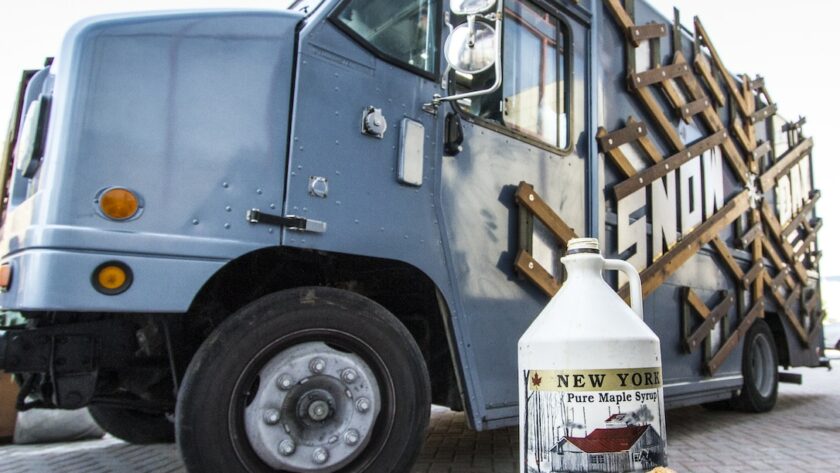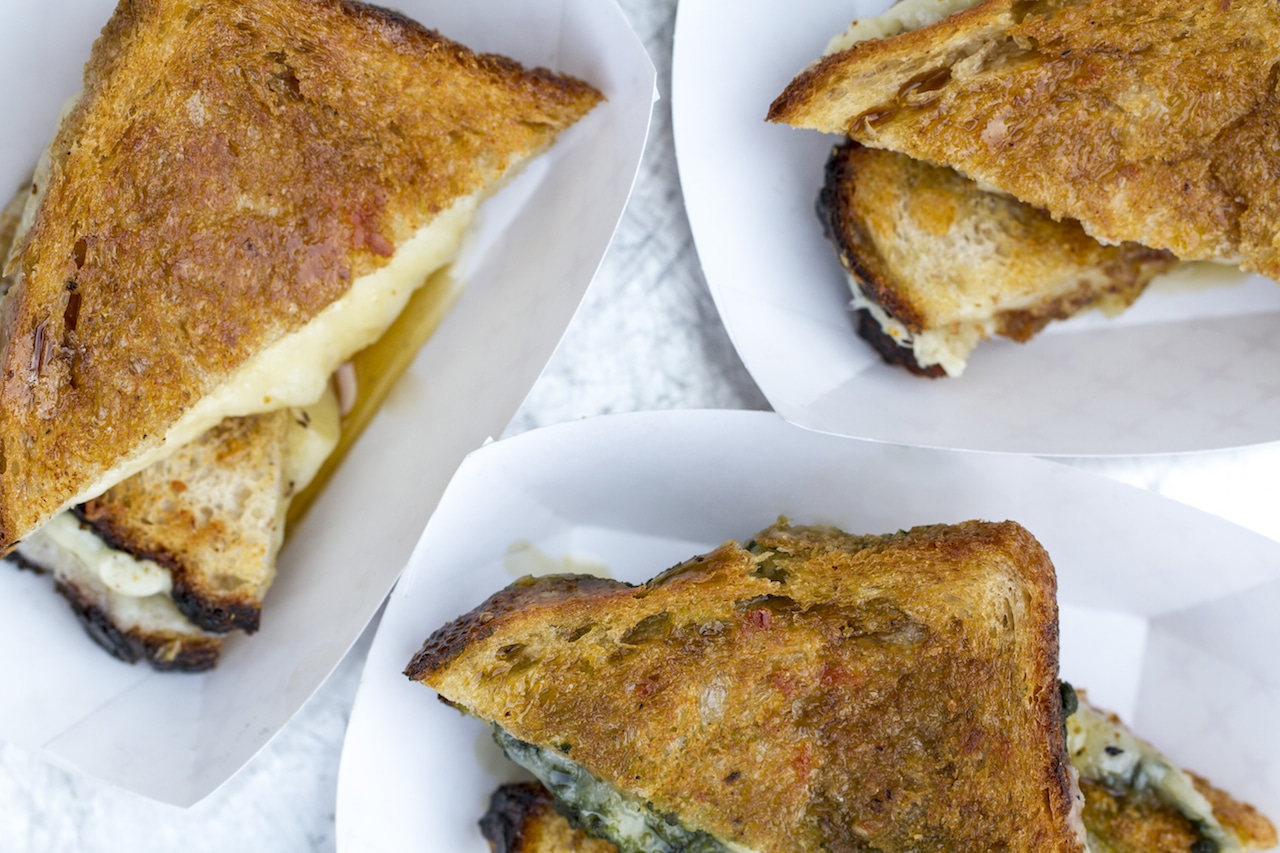
The United States has the highest incarceration rate in the world. It also imprisons more young people than any other nation on earth. On an average day there are around 50,000 16- and 17-year-olds in custody and facing prosecution as adults, most for minor crimes and misdemeanors.
Once imprisoned in adult jail, they are subjected to harsh and terrifying conditions, including beatings, sexual assault and long stints in solitary confinement. After they’re released, life doesn’t get much rosier. Ever tried to rent an apartment, get into college or apply for a job with an open felony record? These barriers make it incredibly difficult to rebuild bright, successful futures. Most re-enter the system, continuing the cycle.
While a number of states have shifted to community-based alternatives, New York and North Carolina still automatically prosecute all 16 year-olds as adults. Nearly every other state holds the age of adult criminal responsibility at 18. While most of us bemoan today’s criminal justice system, Jordyn Lexton did something about it.
She launched Drive Change, an organization that hires formerly incarcerated youth in New York to work on farm-to-fork food trucks, teaching them a transferable skill, providing social and emotional support, and empowering them to change the direction of their lives.

The Ah-Ha Moment
Riker’s Island is New York City’s main prison facility where around 12,000 men, women and children are held. Ironically, even though adolescent offenders are treated as adult criminals, the jail complex has a public high school. This is where Jordyn taught English for three years. During that time she witnessed the devastating impact of the criminal justice system on the young people she taught and was discouraged to see how frequently these promising kids were recycling back. The current recidivism rate is 70%.
She remembers her class was studying the play A Raisin in the Sun and they were talking about dreams. One of her students asked if she thought he could be an architect one day. Jordyn knew it would be a difficult road. He would need to graduate, get into college and be able to afford it. It would take resources, time and discipline but ultimately, yes, if he worked hard and stayed focus, she told him he could do it.
Another student, who had been dozing during the class discussion, suddenly perked up.
“No disrespect,” he told her, “but you’re selling dreams.”
It was that moment that Jordyn realized she wanted to provide concrete opportunities so that these kids had the ability to make real life choices.
But it wasn’t until she walked into a culinary arts class in the prison that the idea for Drive Change materialized. Outside of the confined classroom setting, Jordyn saw the teenagers really come alive. They flourished in the hands-on, creative environment, and respected the rules of the kitchen. Watching the effort they put into preparing the food, and the pride they had when serving it was a game-changer.
Jordyn quit and went to work on the Kimchi Taco Truck for seven months. It was physical, grueling work with long days, but it was worth it. She gained hands-on experience, got her food truck credentials, and developed relationships within the small business food industry. She also worked with juvenile re-entry organizations, building a network that would later help her recruit formerly incarcerated youth who needed not just an employer but skills training and emotional support.
It took over two years; but in the end, Jordyn had built the food truck called Snow Day and officially launched Drive Change.
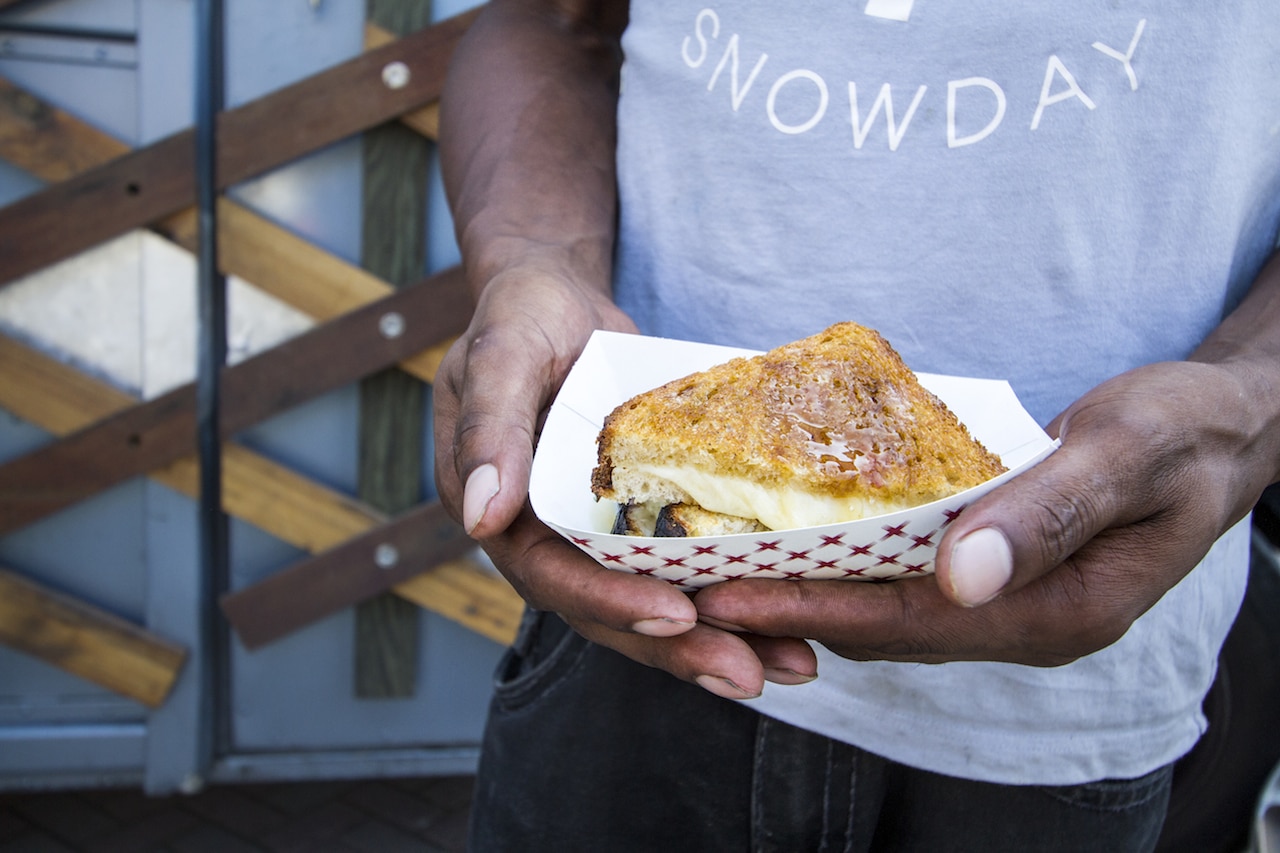
Why Food Trucks?
Opening a food truck instead of a restaurant made fiscal sense, but it also helps Drive Change reach more people. Being mobile means they can drive into communities to deliver farm fresh fare while advocating for a legal system that treats children as children.
Food trucks also require serious face time. There’s no hiding in the kitchen. That visibility creates a sense of personal accountability for the youth and an opportunity to interact with different types of people. Jordyn says the consistent positive feedback has been remarkable for self-esteem, and providing customers with a favorable eating experience is helping to dispel preconceived notions about young people with records.
Finally, the food and hospitality industry is not only primed for entrepreneur-ism and small business, but notoriously welcoming to those with a checkered past. In their biographies, famous chefs like Anthony Bourdain and Gabrielle Hamilton chronicle their encounters with drugs, sex, rock and roll, and even the law.
As Roy Waterman, a chef at Drive Change says, “No matter what your history is, you can be an executive chef, you can own four to five restaurants.”

In addition to their French Canadian-themed menu, this is the type of vital hope that Drive Change is serving up. It’s a six-month transitional program. The first two months are paid training in social media, money management and culinary arts, followed by four months employment on Snow Day.
In it’s pilot year, Drive Change has employed ten people. One has gone back to school. Two have transitioned to full-time work at Witchcraft and the catering company, Great Performances. Three have been hired at Drive Change.
Now that it’s gotten its feet wet, Drive Change plans to hire 24 young people in 2015. They’re also hoping to expand by forming affiliations with food truck owners, creating more employment opportunities for youth that go through their training program. Over ten food truck owners are already interested and Jordyn admits there’s a lot of demand for the organization to fully open its doors next year.
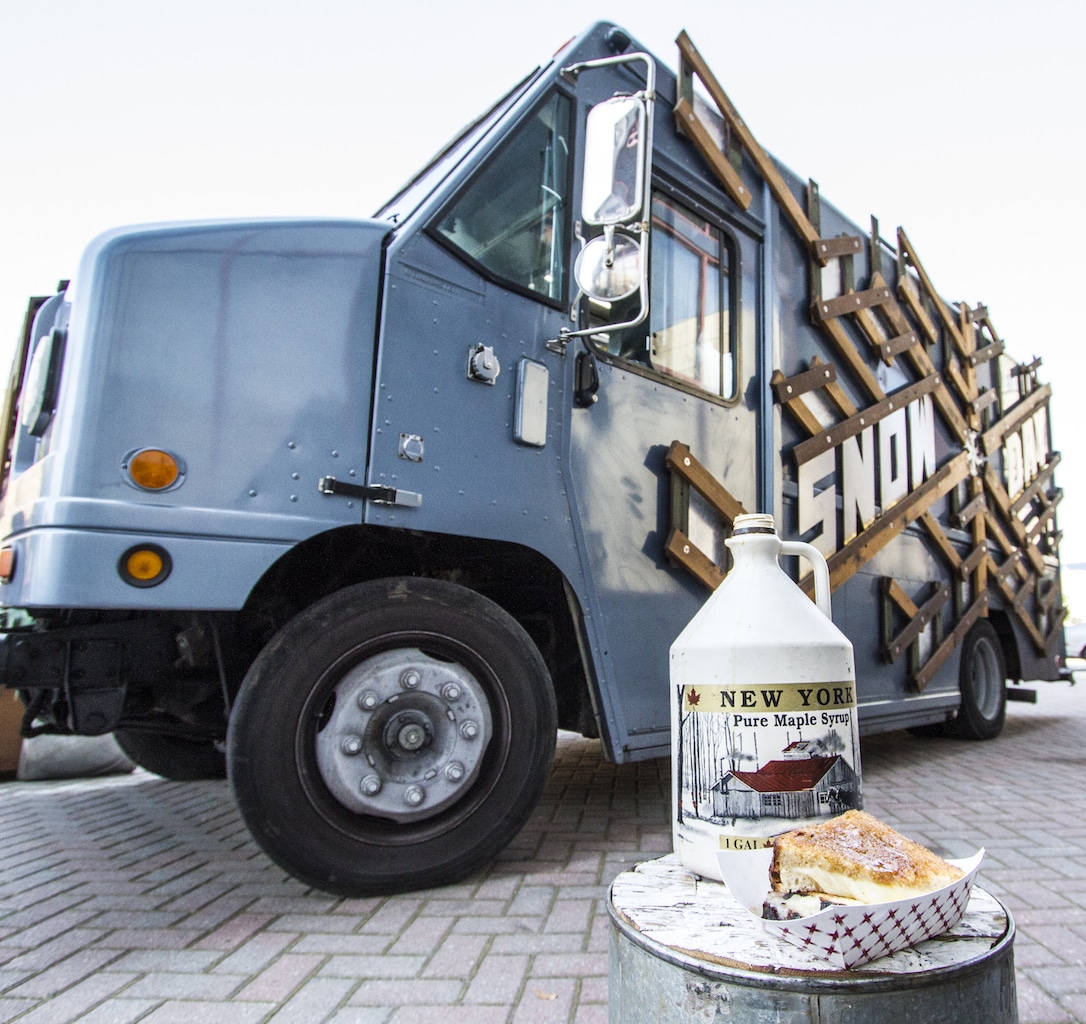
The Complete Package
Still, with a maple syrup-themed menu, it’s hard to not to wish for a fleet of Snow Days. Fan favorites include their seasonal maple bacon brussel sprouts, organic quinoa salad, and Sugar on Snow, fresh snow smothered in hot maple syrup that turns it into taffy. But hands down the most popular item is their maple grilled cheese sandwich.
While the menu is a nod to Canada, the ingredients are all local. Ninety percent of the ingredients Drive Change uses come from farms in upstate New York so it’s all local, including the maple syrup. Supporting local farmers and the economy is important to Jordy’s wholistic approach but it’s also been a culinary education for the team.
The Drive Change team has even visited local maple syrup farms and established relationships with local farmers. Tasting new things, learning new flavors and understanding where the ingredients actually come from has bred ingenuity and a real connection with the food.

Raise The Age
With recent attention on the violent treatment of adolescents on Riker’s Island, you may be wondering why the state doesn’t just raise the criminal age already? Unfortunately, it’s a complicated issue with economic, political, social and even logistical implications.
Politicians often need to present themselves as tough of crime to win votes. Additionally, many upstate towns rely on these correctional facilities for livelihood. It’s hard to run against prisons when they’re running the economy of the towns you represent.
Additionally, if adolescents don’t go to Riker’s Island, where would they go? Tens of thousands of young people would move from criminal court to family court, and yet there is limited space and judges to handle the current caseload, and communities don’t want new facilities built in their neighborhood.
Finally, it requires a cultural shift from a correctional system to a rehabiliatory one. In a society that often touts an eye for an eye, Jordyn believes it’s in everyone’s best interest to seek a different approach. After all, she argues, 95% of inmates are slated to return home at some point. As a citizen and potential neighbor, wouldn’t you want them to be a dedicated, thriving member of society?
It’s clear that dedicated reform will require thoughtfulness, innovation and tough choices. Jordyn wants the legal age to be raised to 21. But she also hopes New York will push for real reform. As only one of two states left, the state has an opportunity to not just catch-up, but set the standard. As she points out, every day we delay is a day that a young life is being damaged.
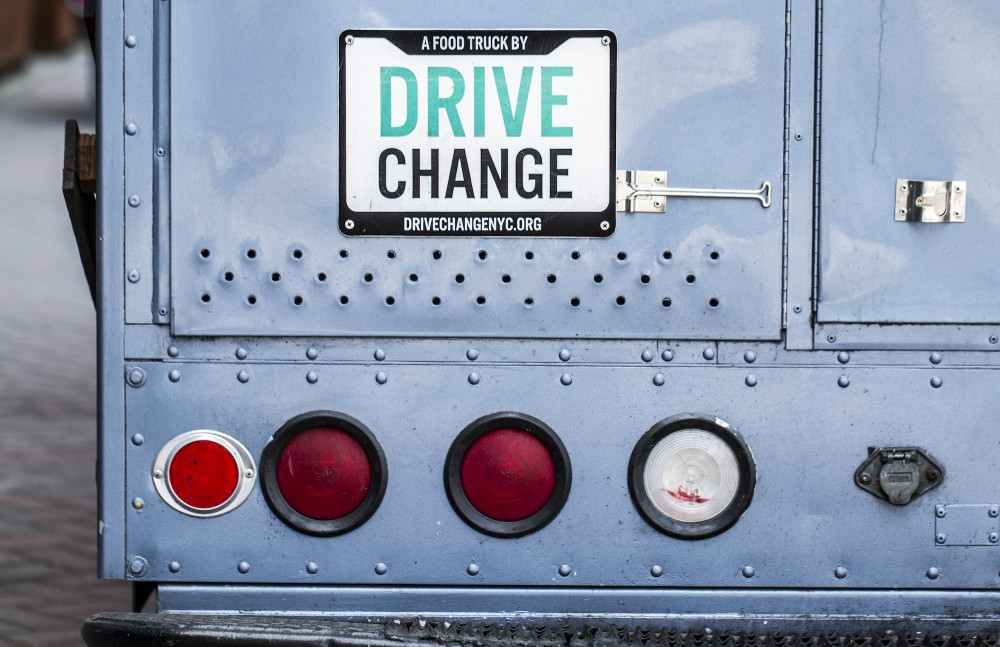
What’s Next?
To raise awareness, Drive Change is hitting the road in March, driving from New York City to North Carolina and back. Stopping in eight cities during the 1,025 mile journey, the road trip will feature local celebrity chefs, real-time video and an interactive map where supporters can click by mile to donate.
They’re also continuing to raise money through fall fundraisers and catering events to build their own kitchen space and hire an in-house social worker. In time, they hope to create a Drive Change commissary, where they can clean and prep Snow Day, run their training programs, and offer needed warehouse space to other food trucks interested in partnering with them.
In the meantime, Jordyn keeps advocating. She believes strongly that young people deserve an opportunity to access a bright future. Because in the end, we have all made mistakes and deserve an opportunity to fix them.
Drive Change is only as powerful as the community that supports it. Educate yourself, volunteer, donate, advocate. Hire the truck!
*Sources include Raise the Age New York, the National Juvenile Justice Network and Drive Change.
By Abby Sugrue of Breakfast Included
Also Check Out:
To Be Honest, I Just Want To Volunteer: Common Voluntourism Mistakes And How To Fix Them
Wildlife Experiences: A Humane Holiday Or Torturous Tourism?
How Jewelry Is Helping Underprivileged Girls In Bangladesh Gain An Education
Latest posts by Abby Sugrue (see all)
- How A Farm-To-Fork Food Truck Is Providing A Positive Future For Formerly-Incarcerated Youth - Nov 24, 2014
- 48 Hours On A Vineyard: 5 Things I Learned During Harvest Season - Nov 10, 2014
- How Jewelry Is Helping Underprivileged Girls In Bangladesh Gain An Education - Oct 28, 2014
- Get Involved: Celebrate International Day of the Girl By Helping Provide An Education - Oct 10, 2014
- Shakshuka: The Key To Delicious Cultural Immersion On A Budget In Israel - Sep 29, 2014

